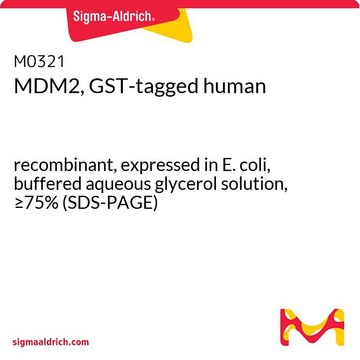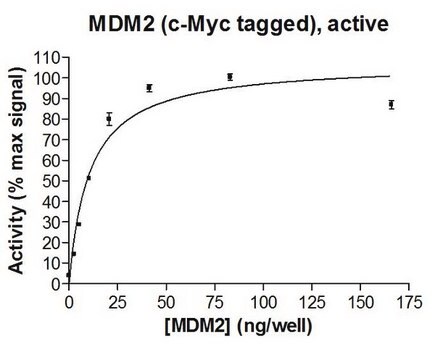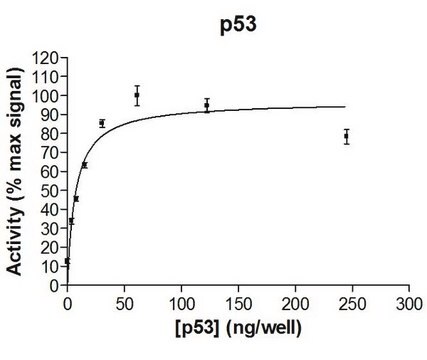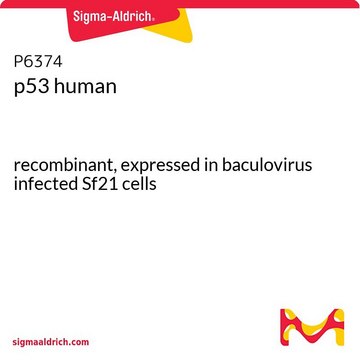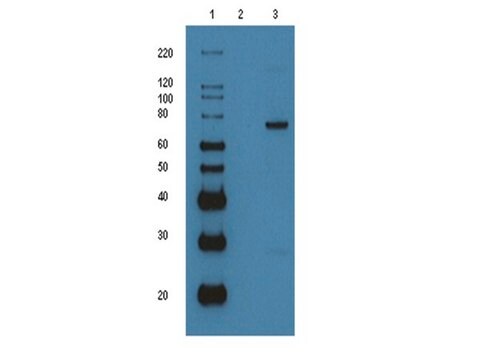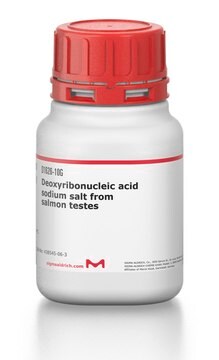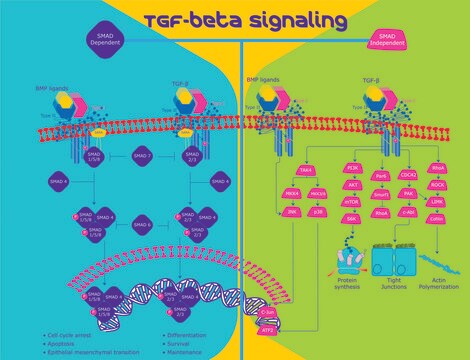SRP2095
MDM2, HIS tagged human
recombinant, expressed in E. coli, ≥80% (SDS-PAGE), buffered aqueous solution
Synonyme(s) :
HDMX, MGC5370, MGC71221, hdm2
About This Item
Produits recommandés
Source biologique
human
Produit recombinant
expressed in E. coli
Étiquette/Marqueur
8-His tagged (C-terminus. )
Pureté
≥80% (SDS-PAGE)
Forme
buffered aqueous solution
frozen liquid
Poids mol.
~57.8 kDa
Conditionnement
pkg of 10 μg
Concentration
350 μg/mL
Couleur
clear colorless
Numéro d'accès NCBI
Numéro d'accès UniProt
Conditions d'expédition
dry ice
Température de stockage
−70°C
Informations sur le gène
human ... MDM2(4193)
Actions biochimiques/physiologiques
Forme physique
MDM2 is stored in 20mM Tris-Cl (pH 8.0), 20% Glycerol, 100mM KCl, 1mM DTT and 0.2mM EDTA buffer.
Notes préparatoires
Code de la classe de stockage
10 - Combustible liquids
Classe de danger pour l'eau (WGK)
WGK 1
Point d'éclair (°F)
Not applicable
Point d'éclair (°C)
Not applicable
Certificats d'analyse (COA)
Recherchez un Certificats d'analyse (COA) en saisissant le numéro de lot du produit. Les numéros de lot figurent sur l'étiquette du produit après les mots "Lot" ou "Batch".
Déjà en possession de ce produit ?
Retrouvez la documentation relative aux produits que vous avez récemment achetés dans la Bibliothèque de documents.
Notre équipe de scientifiques dispose d'une expérience dans tous les secteurs de la recherche, notamment en sciences de la vie, science des matériaux, synthèse chimique, chromatographie, analyse et dans de nombreux autres domaines..
Contacter notre Service technique